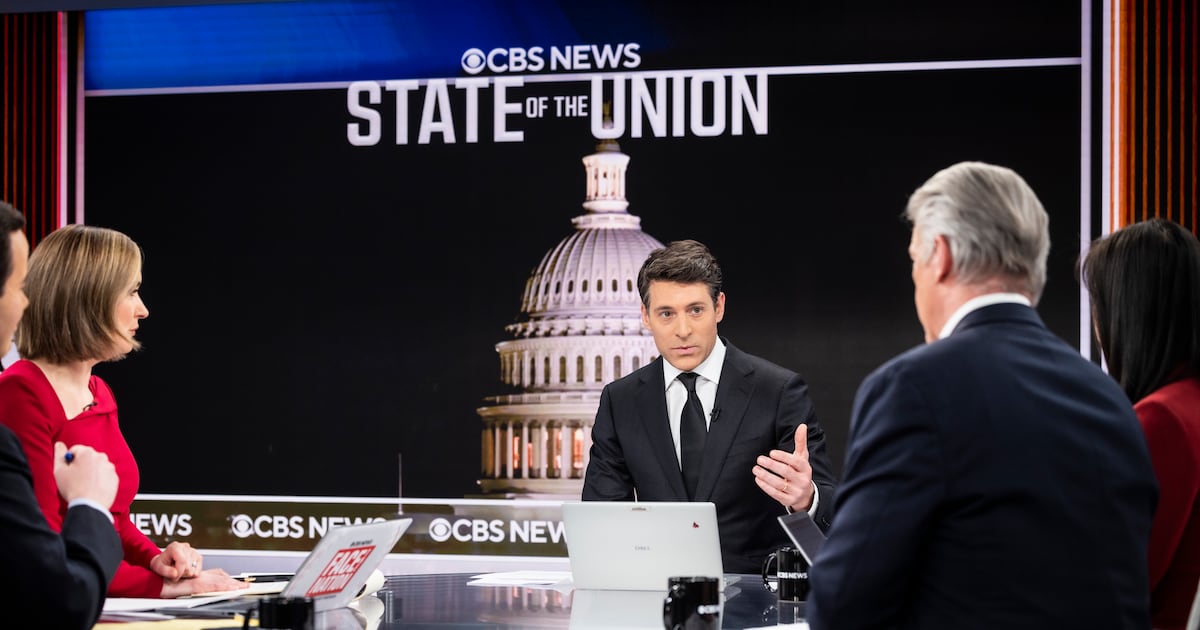
100 years ago this month, the United States of America entered World War I. Then known simply as the Great War, this cataclysmic upheaval kickstarted the 20th century. Now, PBS presents a three-night series exploring the legacy of the Great War, as told through the letters and stories of those who fought the battle abroad and on the homefront. “The Great War” tells, too, the story of oft-forgotten heroes of the war, from African-American soldiers to the nascent suffragette movement, and more––read on for more about these American heroes, and don’t miss “The Great War” on PBS, premiering Mon, April 10, at 9/8c.
It’s a curious, perhaps sad fact that throughout American history, some of the greatest strides in social progress have come as the direct result of war. The Revolution granted us liberty from monarchical tyranny. The Civil War abolished slavery. More recent conflicts raised the overall standard of living, greatly increased access to higher education, broke down age-old prejudices and class barriers, and forced a grand re-evaluation of age-old notions about war itself. But these more recent advances were only made possible by others that were themselves the products of the war that marks the watershed between the archaic and the modern, the conflict that transformed the old America and world into the ones we inhabit today: The Great War.
Yes, that war came closer than any before it to obliterating the species that waged it, but it was also a rising tide that raised all boats, including some in this country that had struggled since its inception for equality and opportunity. Though all are still engaged, to varying extents, in that struggle today, they made unprecedented advances after that war by making unprecedented contributions during it––contributions that are, unfortunately, somewhat forgotten today.
In some cases, the opportunity surfaced by accident. The Naval Reserve Act of 1916 delineated, in great detail, the requirements that needed to be met by any “person” who wished to serve in the Naval Reserve––but failed to specify that such persons needed to be male. In mid-March, 1917, Josephus Daniels, President Woodrow Wilson’s Secretary of the Navy, a newspaper publisher from North Carolina with no previous government service – he got the job because his paper, The Raleigh News & Observer, supported Wilson in the 1912 election – discovered the oversight and made inquiries about whether there was any reason women couldn’t serve as Yeomen in the Navy; told there was not, he let the omission stand. Within six weeks, some 600 women had enlisted in the USNR. All were assigned the rank “Yeoman (F),” though they were commonly known as “Yeomanettes.” There would be 11,000 of them by war’s end.
Now, some women had served in the Navy Nurse Corps before this time, but they were civilians, with no rank and very few benefits. Yeomanettes, on the other hand, were given the same duties and responsibilities as Yeomen; and they were paid the same, too. At a time when women who worked outside the home were typically looked at askance – not to mention the fact that they couldn’t even vote yet – the opportunity to serve, in uniform, alongside men in one branch of the armed forces was almost unimaginably liberating and empowering. The two former Yeomanettes I interviewed for The Last of the Doughboys – they were 107 and 108 years old when we met – told me they’d joined up for the same reasons men had: to get out of the house; to serve their country; for adventure. Their example inspired not only women nationwide, but men, too: the owners of munitions plants (all male), facing a shortage of men in wartime, started hiring women to fill their open jobs. That’s right––Rosie the Riveter was a product of the First, not the Second, World War.
As for the Yeomanettes, most were assigned clerical tasks, and most served stateside. And as soon as the war was over, all 11,000 were summarily discharged, whether they wanted out or not. And for some reason, the Navy awarded them general, not honorable, discharges; it took decades to redress that injustice. But what the Navy had given them in the spring of 1917 it could never really take away afterward. Women were among the founders of the very first American Legion posts in the country, in 1919. The following year, the Nineteenth Amendment to the Constitution gave them the vote. It was no coincidence. In the next war, women would serve, in much greater numbers, in every branch of the armed forces.
African-Americans had been serving in the armed forces since the Revolution. But the advances made by the Emancipation Proclamation and then the Thirteenth, Fourteenth, and Fifteenth Amendments had been rolled back when Reconstruction ended, not only in the states of the former Confederacy but – thanks in large part to some tragic Supreme Court decisions, including the notorious Plessy v. Ferguson ruling – throughout the country. By the time America entered the war, in April, 1917, segregation reigned north and south, fifty or more lynchings occurred every year, and a motion picture, D.W. Griffith’s The Birth of a Nation – Woodrow Wilson screened it at the White House – had revived the long-dormant Ku Klux Klan. Debates raged over “what to do with the negro in the World War,” with many arguing that the answer should be “nothing at all.” Indeed, early in the war it seemed like that might, in fact, be the War Department’s policy. In some cases, African-Americans looking to enlist were actually turned away––this at a time when the War Department was calling for an army of ten million to be raised.
While that policy, for practical reasons, didn’t last long, no actual policy of what, exactly, to do with the Negro in the armed forces was ever really established. African-Americans were to be kept separate, of course, but should they be allowed to actually fight, even in entirely colored divisions, or strictly consigned to support roles? While the official answer was the former, many in the top brass took it upon themselves to pursue the latter one, instead, sometimes going so far as to disarm combat units and hand them shovels. Nevertheless, African-Americans did not eschew military service; rather, heeding W.E.B. DuBois’ proclamation that “if this is our country, this is our war,” they signed up by the hundreds of thousands––for the same reasons the Yeomanettes did, and one more: to reclaim the equal rights that had been promised them, granted them, and then snatched away. Only twenty percent of African-American doughboys sent overseas were assigned to combat units, but all rendered invaluable service to the cause, often at the cost of their lives. Their white officers – indeed, any white soldiers who ever came into contact with them – knew it. And they knew it themselves, too. They returned home with a great sense of what they had done for their country and what it owed them in return, as well as a vision – glimpsed in France – of what a country that wasn’t afraid to repay that debt looked like. That war generated nothing less than the birth of the modern civil rights movement.
One marginalized group the War Department did actively court was immigrants, and marginalized they were: though they generally had a much easier time actually getting into the United States back then, immigrants were largely barred from “respectable” jobs, consigned to “disreputable” neighborhoods, viewed with suspicion, mocked in newspapers and on the Vaudeville stage, and pressured mightily by everyone from local officials to former President Theodore Roosevelt to sever all ties to the land, culture and language of their birth and become solely, purely, fiercely American. The country that prided itself on being a “melting pot” often didn’t seem to know what to do with them. And there were an awful lot of them: twenty million arrived between 1881 and World War I––the entire nation had only had fifty million residents before that great wave began.
Their sheer numbers, in fact, convinced Secretary of War Newton D. Baker that the American Expeditionary Forces – the military machine he was tasked with assembling to defeat the Central Powers – simply could not do without immigrants. Rather than browbeat and harass the foreign-born into serving, Baker adopted a policy of outreach and accommodation designed to make immigrant recruits feel welcomed, valued, and invested in the country’s armed forces – and thus, by extension, the country itself. Foreign-born soldiers – even those who had immigrated from Germany and the Austro-Hungarian Empire – were given a fast-track to citizenship. Training camp libraries stocked foreign-language newspapers. Chaplains were recruited, in large numbers, who represented a broad spectrum of faiths and denominations. Officers were encouraged to learn foreign languages; those who already spoke them had a leg up for promotion. Mess Sergeants were instructed to incorporate soldiers’ native fare into their repertoire. Recruiting posters were printed up in dozens of foreign languages.
They worked: by war’s end, nearly one-fifth of the men in the American Expeditionary Forces were foreign-born. The first division of draftees to sail off for France, the 77th – nicknamed the “Statue of Liberty” Division – was drawn from the city of New York; its men were said to speak more languages than any other division in the history of the world. Newspapers loved them, followed their exploits closely, and reported in great detail everything they did. They sailed off as raw recruits, immigrants; they returned as heroes, Americans.
I wish I could tell you that all these stories had happy endings, but it is a curious, undeniably sad fact that at least some of the advances these three marginalized groups made during the war were rolled back in the decades that followed. A century later, women, African-Americans, and immigrants still struggle in this country – for acceptance, for equal rights, for fulfillment of the promises that America holds out for all of us. That struggle, it seems, will continue for some time to come. But it would scarcely be possible at all without America’s involvement in the First World War––what it asked of them, and what they delivered. Progress may proceed it fits and starts, but it proceeds. Strange to think that we have the most catastrophic war the planet had ever seen to thank for that.
Richard Rubin is the author of the widely acclaimed The Last of the Doughboys: The Forgotten Generation and Their Forgotten World War , a conversational history of America’s experience in World War I as recalled by its last surviving veterans, as well as the forthcoming Back Over There: One American Time-Traveler, 100 Years Since the Great War, 500 Miles of Battle-Scarred French Countryside, and Too Many Trenches, Shells, Legends and Ghosts to Count. His writing has appeared in The New York Times, The New York Times Magazine, The New Yorker, The Atlantic, Smithsonian, and elsewhere.






